Tears and destruction amid Turkey PKK crackdown
- Published
Hundreds have died and thousands have been displaced since a ceasefire broke down in July.
The silence is pierced by volleys of gunfire and military vehicles rushing past. There's a loud explosion, sending acrid smoke billowing into the air. Snipers perched on a hotel rooftop open fire - the crack of their rifle shot is terrifyingly close.
This is Turkey: a Nato member and European Union candidate. And swathes of its south east are sliding into chaos.
The heart of the battle is Diyarbakir, where the Sur neighbourhood has been under curfew for weeks, as Turkish police and military flush out rebel fighters from the PKK - the Kurdistan Workers' Party. A two-year ceasefire broke down last July, plunging swathes of south-eastern Turkey back into armed conflict.
The army says about 500 militants have been killed since December, when curfews were imposed in seven cities. Human rights activists insist more than 100 of them were civilians.
For days, a group of mothers have gathered in the city centre, appealing for their children's bodies to be returned. They remain stuck in the curfew-hit area, the mothers unable to bury their dead.
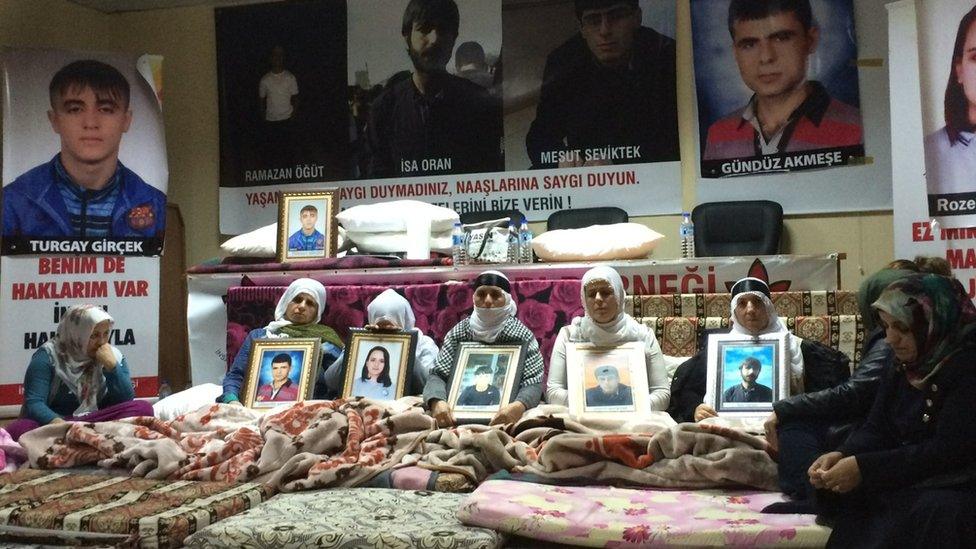
Mothers in Diyarbakir are appealing for their children's bodies to be returned
Fahriye Cukur grips a framed photograph of her daughter, Rozerin. She's pictured in the school uniform she wore on 8 January, when she ventured into Sur during a partial lifting of the curfew and was shot by snipers.
Fahriye tried to reach her by phone but the lines were down. She learned of her daughter's death through the media.
"The thing I'll miss most is her calling me mama," she says, staring vacantly into the distance. "She was 16 and went to Sur to study with a friend. She liked history, she liked art. She was a poet."
Why are Turkish clashes with PKK escalating?, external
Turkey v Islamic State group v the Kurds, external
At her home, Fahriye shows me more photographs of Rozerin - and the emotion is too much to bear.
"I dreamt my daughter would go to university and I would pack her luggage. They've shattered my dreams," she says, barely able to speak through sobs.
"They call us 'terrorists' and kill us. Who will hear my cries? Is it [President] Erdogan? Why did he do this to me?"
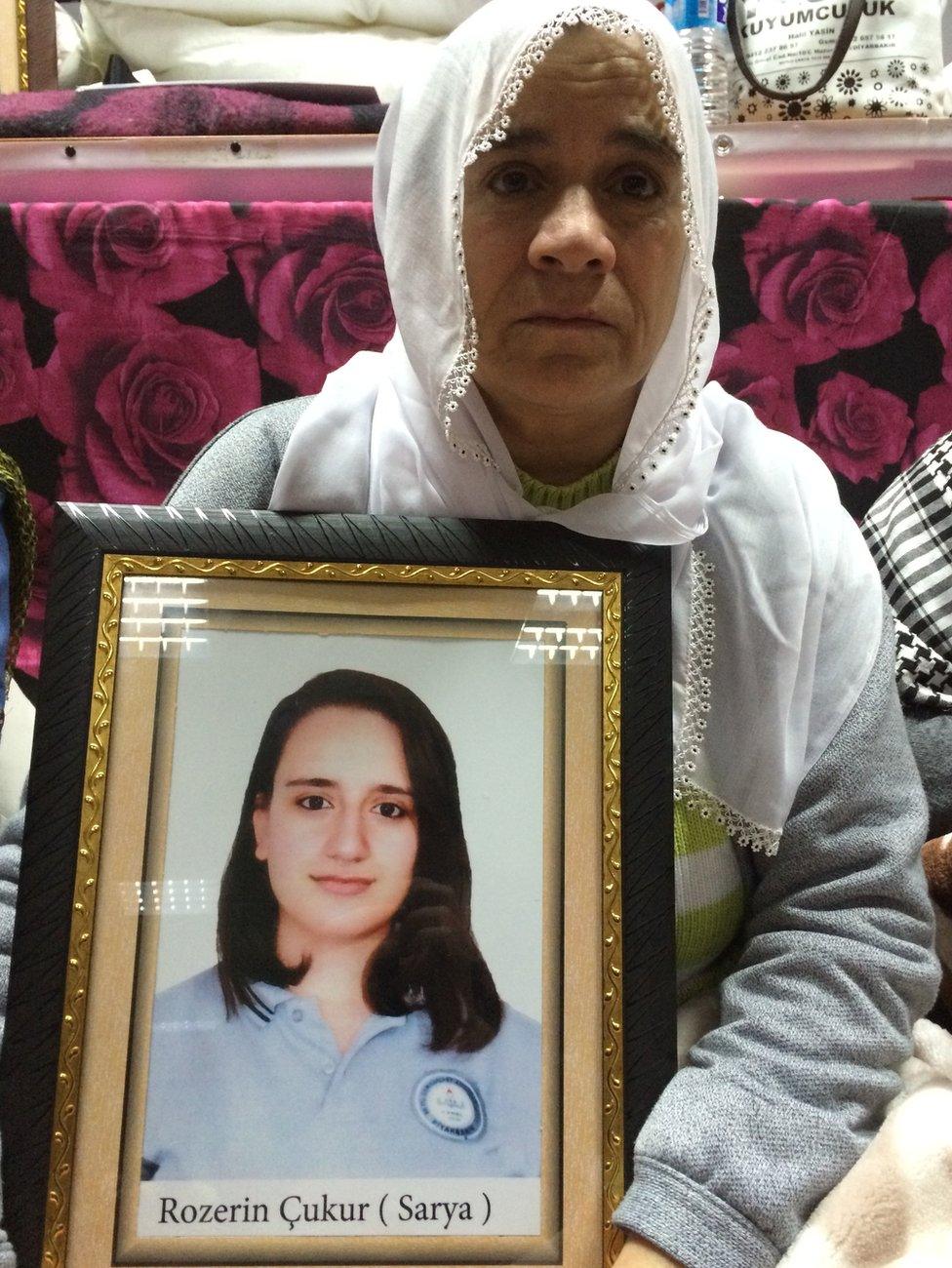
Fahriye Cukur's daughter was killed by snipers in the Sur district of Diyarbakir
The authorities insist only PKK militants are targeted, vowing to push on with the operations until, in the president's words, the fighters are "annihilated".
Since July, more than 200 Turkish soldiers and policemen have been killed in attacks by the PKK, which is listed as a terrorist organisation by Turkey, the EU and US.
But the government has faced criticism that it's too focused on the fight against the PKK, and should instead deploy more resources against so-called Islamic State (IS). Air strikes on the Kurdish militants have far exceeded those against IS, with Ankara only recently stepping up its role in the US-led coalition.
A suicide bomb blamed on IS militants killed 10 tourists in Istanbul earlier this month - proof, say critics, that the government has allowed IS to spread while narrowly pursuing the PKK.
But the allegations go further; that President Recep Tayyip Erdogan has reignited the PKK battle in order to crush support for the pro-Kurdish party in parliament, the HDP, which is frequently labelled "terrorist supporters" by his government and a pliant Turkish press.
There is even the suspicion he will push for another election in a few months, to gain enough MPs to change the constitution and boost his powers. For that, he would need to force the HDP out of parliament.
Ankara fiercely denies the accusations, insisting it was the PKK that resumed the conflict.
"The terrorist group is opening fire on our security forces - that is why the clashes have broken out," says Huseyin Aksoy, the governor of Diyarbakir.
"If people dug trenches, erected barricades and declared 'self-rule' in Britain or any European country, the response would be the same."
He insists only one civilian has died in Diyarbakir during the operation - and an investigation is under way to determine from which side the bullet came.
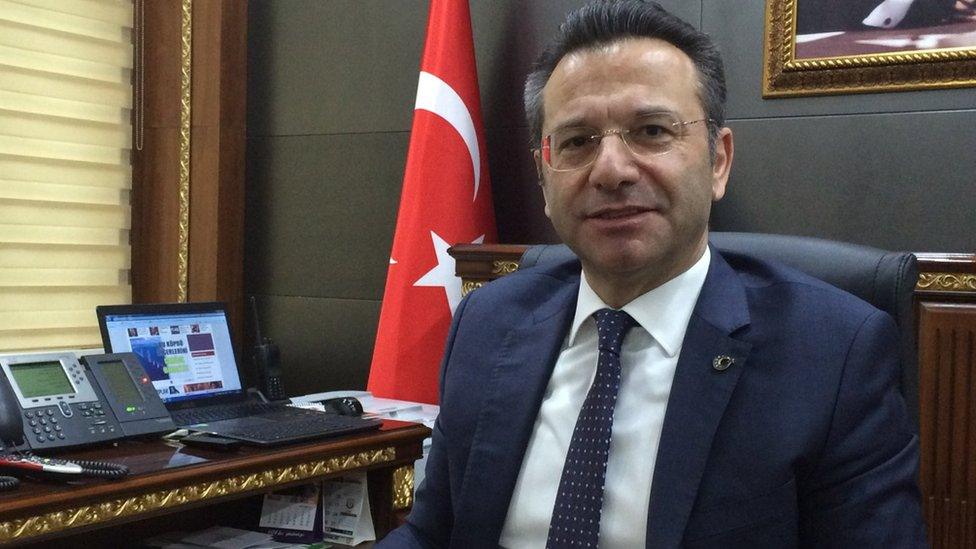
Diyarbakir Governor Huseyin Aksoy says Turkey's tough stance is justified
"We are protecting our citizens - it was our responsibility to intervene," he adds.
The Turkish authorities did not allow us into the Sur neighbourhood of Diyarbakir to see the impact of the operation. So we drove three hours to the town of Silopi, where the curfew has been partially lifted. Frequent military and police checkpoints dot the road.
Inside Silopi, it's as though an earthquake has hit. Houses are completely destroyed, walls either collapsed or ripped apart by tank shells. Buildings are riddled with bullet holes.
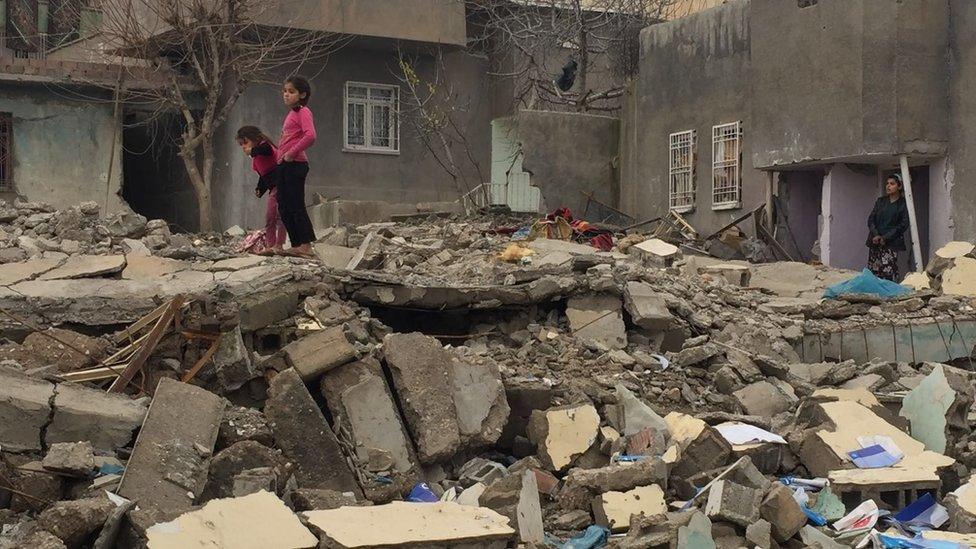
Some houses in the town of Silopi have been destroyed by the fighting
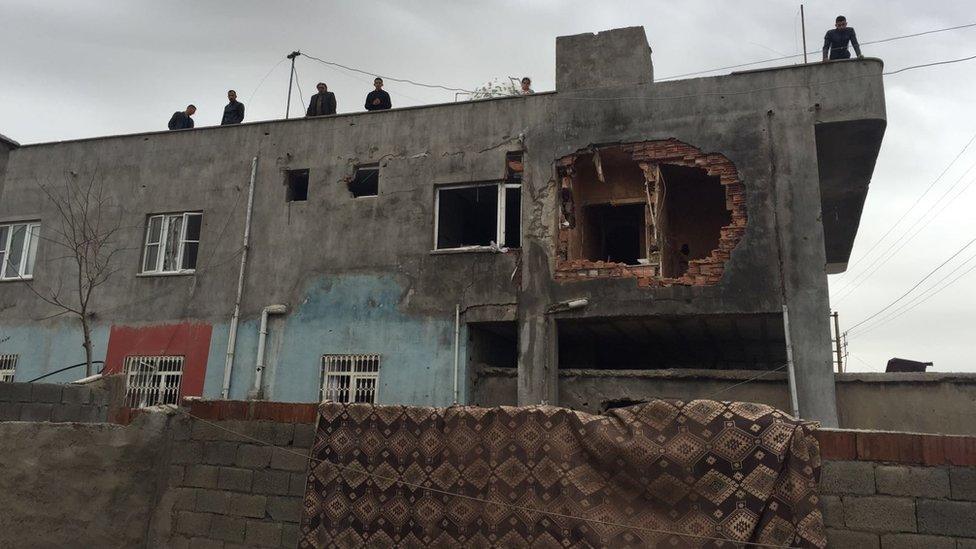
Signs of the violence are everywhere
Turkey thought armed conflict was over when the 2013 ceasefire halted the fighting with the PKK that had killed 40,000 people over three decades. But it's back.
Fadile Seflek shows me her house - or what is left of it. Rubble is strewn everywhere, the windows are shattered, every room is burnt out.
"We fled because of the fighting, and when we came back I just cried, inside and out," she says.
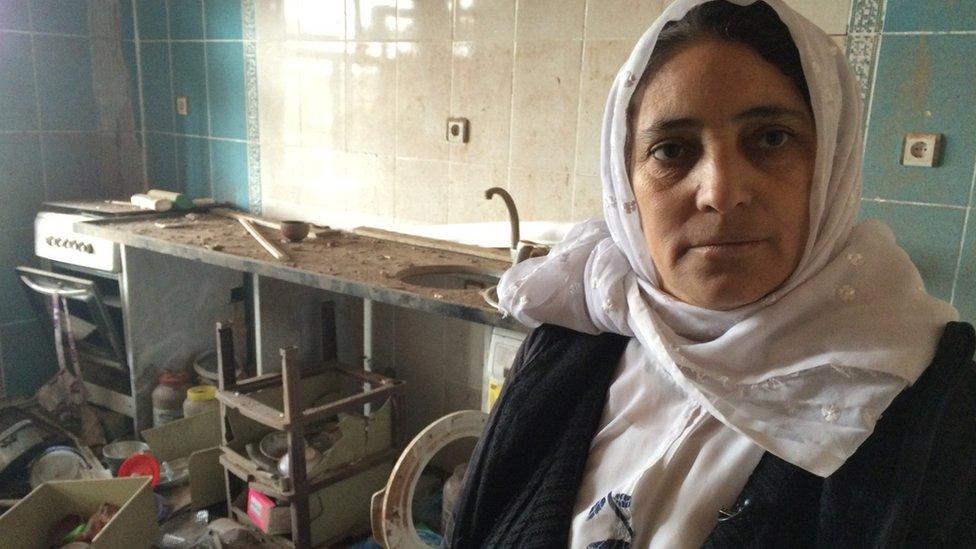
Fadile Seflek's home in Silopi has been destroyed
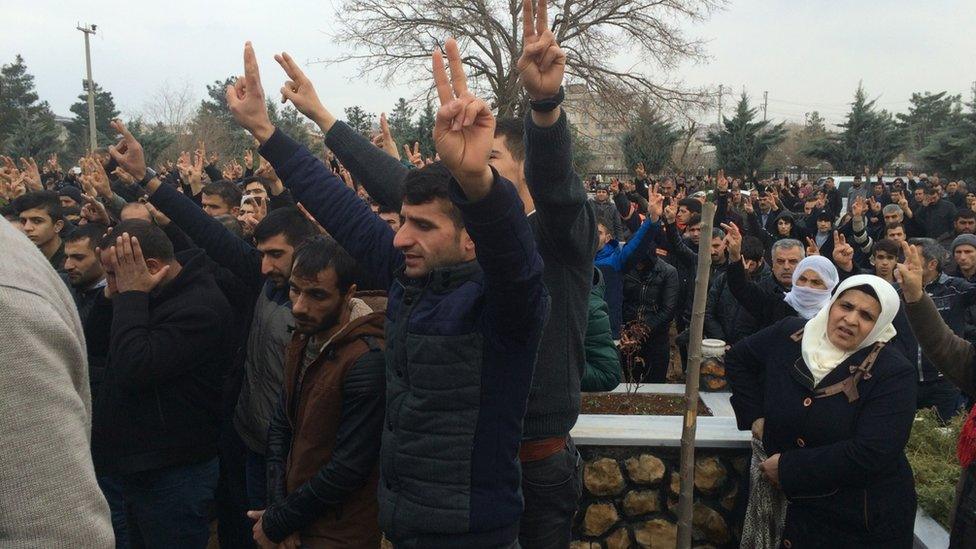
Angry mourners at Kurdish funerals vow defiance
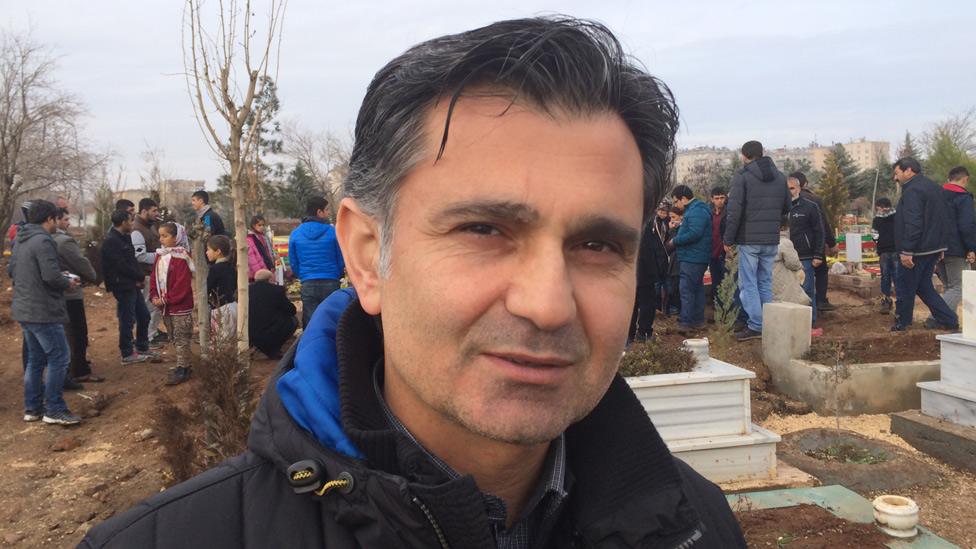
Kurdish MP Ziya Pir: Elation over the strong pro-HDP vote did not last long
Every few days more bodies are retrieved from curfew-hit areas. The funerals are attended by hundreds. Chants of "martyrs never die" and "the murderous state will pay" ring out.
Attending one funeral is an MP for the HDP party, Ziya Pir.
We met in Diyarbakir last June, just before the election that saw the pro-Kurdish party get into parliament for the first time. There was an atmosphere of elation, that the Kurdish minority would finally achieve national representation.
The party polled 13%, higher than expected. It's widely believed that President Erdogan scuppered coalition talks to force a repeat election in November, in which the HDP vote was pushed down due to the conflict and the party he founded regained its majority.
"Back in June you asked me if a war was possible between the Turkish state and the PKK," Ziya says.
"I said never again, but now we have that war. We have mothers crying on both sides and a government in Ankara that doesn't listen to them. My message to both sides is to pull back. Nobody wants this war."
But there is no sign of compromise by either side. Once the fighting does finally end, militants may have been killed but the hatred will have deepened here. Months of conflict will certainly act as a PKK recruitment tool for another generation.
Reconciliation and solving the age-old "Kurdish problem" here seems more distant than ever.
- Published14 January 2016
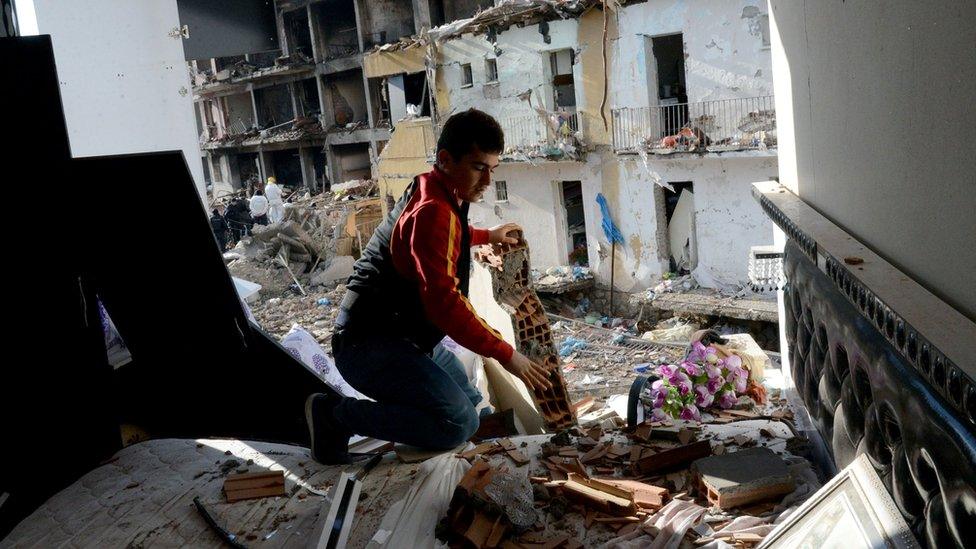
- Published14 December 2015
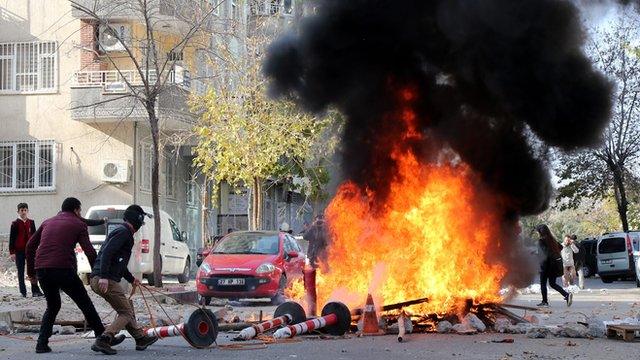
- Published9 September 2015
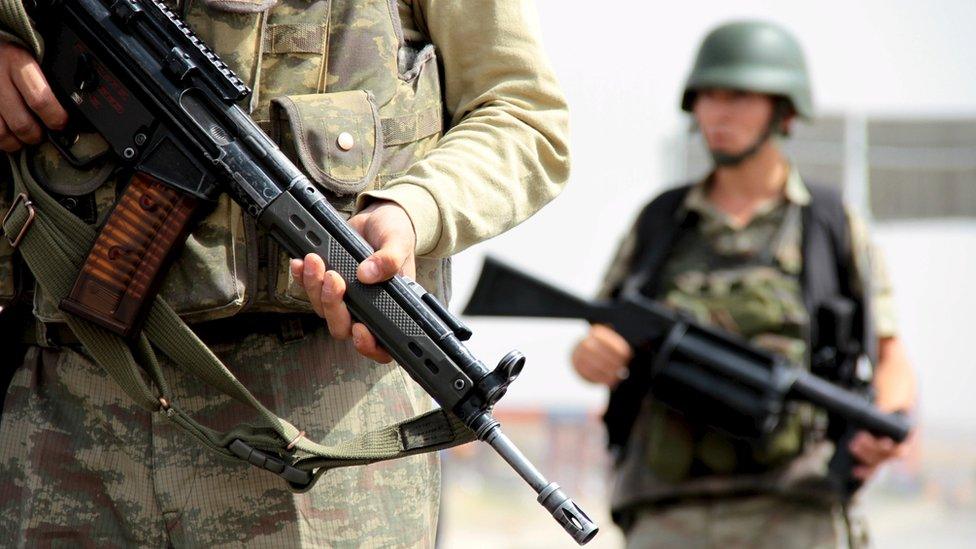
- Published23 August 2016
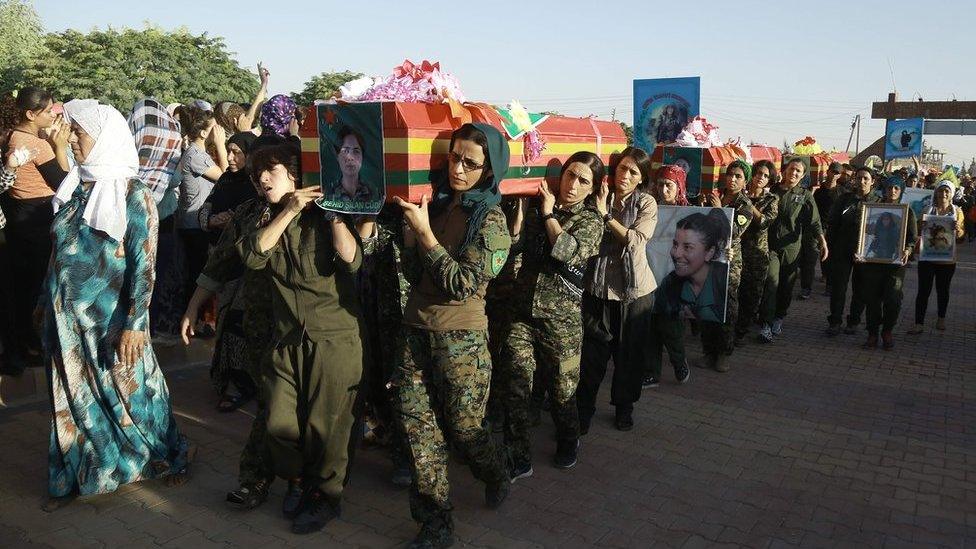
- Published22 August 2023
